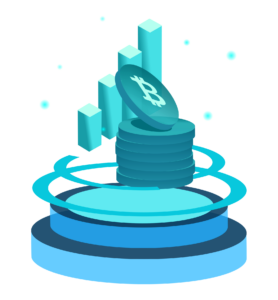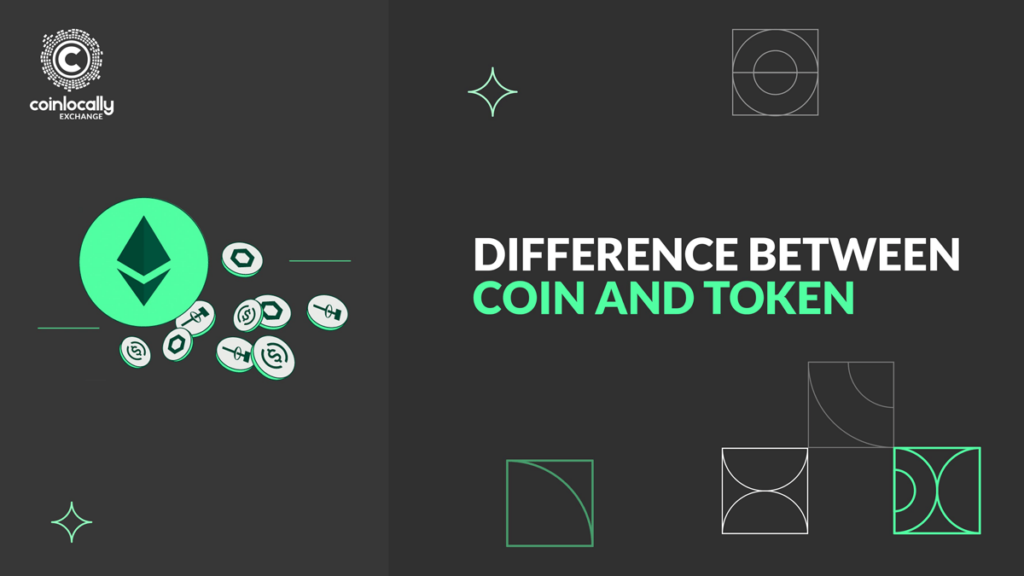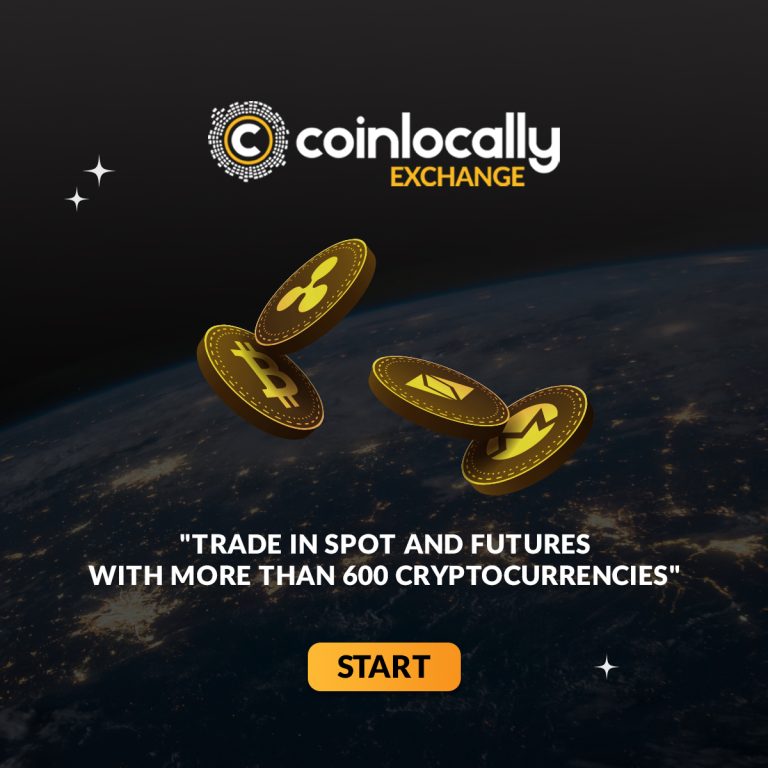what is the difference between coin and token? Like fiat currency, such as dollars, euros, yen, etc., coins and tokens both serve as a store of value. However, there is a significant distinction: while digital tokens represent things that can be given a price, digital coins are a form of money.
Both coins and tokens can be found on a blockchain, an openly accessible ledger that stores encrypted records of all digital transactions. For instance, the Ethereum blockchain keeps account of transactions involving Ether currencies.
Ether coins or tokens based on Ether are tracked on the blockchain as they are traded. Individuals and businesses store their coins in digital “wallets” that are protected by specific passwords.
Table of Content
• What’s the Difference between Coin and Token?
• The Internet and Blockchains
What’s the difference between Coin and Token?
Digital money is here, but it might be confusing to understand the new terminology. Understanding the distinction between cryptocurrencies and tokens is an excellent place to start when trying to learn this realm.
Similar to fiat money like dollars, euros, yen, etc., coins and tokens serve as a store of value. But there is a significant distinction: although digital tokens can represent anything, digital coins are a type of money.
A blockchain is a public ledger that contains an encrypted record of all digital transactions and where both coins and tokens may be found. The transactions involving Ether coins are tracked by the Ethereum blockchain, for instance.
The blockchain keeps records of the exchanges of ether coins or ether-based tokens. The coins that people and businesses ownerskeep in digital “wallets”are protected by specific passwords.
Cryptocurrencies and tokens are similar to fiat money, but there is a significant distinction: digital coins are a type of money, while a blockchain is a public ledger that records all digital transactions.

The Internet and Blockchains
The Internet made the blockchain idea viable. The blockchain exists on the wide network of connected servers and clients that makes up the Internet, as opposed to having a physical location like a corner bank.
No vaults, guards, or armored vehicles are present to transport digital currency. Blockchain is not under the authority of any organization or government. A coin’s price is determined solely by supply and demand.
Numerous sizable businesses already accept bitcoin as payment, and El Salvador has adopted it as its official currency. More people will buy and store Bitcoin and other digital currencies in their digital wallets as more businesses begin to accept Bitcoin as payment.
What Are Crypto Tokens?
On the blockchain, there is a digital record for each token. Yet tokens aren’t actually money in the conventional sense. They depict things instead.
A digital token frequently stands in for real or intellectual property, such as a piece of music, a book, or an artwork. The non-fungible token, or NFT, is the most well-known illustration of this.
How Do Cryptographic Tokens Operate?
Similar to a digital collectible, an NFT. It may be purchased, acquired, sold, or exchanged. Its value will be great if it stands for anything significant or alluring to a big number of people. While some tokens have been sold for millions of dollars, most have only ever traded for a small portion of an Ether.
Tokenizing
A real estate deed, news piece, or screenplay can all be tokenized. Burger King has created a game where users may earn NFT items. Non-fungible tokens with Melania Trump’s likeness are being offered for sale.
The production of digital currency is a labor- and resource-intensive procedure. It calls for machinery, money, structure, and programmers.
In contrast, anyone with a computer and a source to tokenize can create tokens. The necessary software is easily accessible across a number of platforms.
You may create a digital token from a homework assignment, a postcard, or a shopping list. Somebody might even buy it.
The Internet and Blockchains have made the blockchain idea viable, as it is not under the authority of any organization or government. Cryptographic tokens, or NFTs, are digital records that can be purchased, acquired, sold, or exchanged. They often stand in for real or intellectual property, such as a piece of music, a book, or an artwork. The production of digital currency is a labor- and resource-intensive procedure, but anyone with a computer and a source to tokenize can create tokens.
Utility Tokens
Knowing that tokens come in many flavors will help you comprehend them. For instance, utility tokens straddle the coin-to-token continuum. Businesses are the ones who make them. They grant the owner the right to utilize the good or service provided by that business in the future.
Because of this, it is challenging for buyers and sellers to forecast the value of their ether-based tokens and coins in the future. But the function is restricted. You would not be able to use a Burger King token for an Uber ride, for example, or a Disney+ subscription.
Security Tokens
Security tokens represent a tradable investment or asset. The title to real land or an automobile can be tokenized, just like a company’s shares.
As investments, tokens are regulated by government agencies. Theoretically, this reduces the risk of fraud and hacking for its owners. A blockchain record of a security token’s existence serves as proof of ownership.

Did you know that Coinlocally has the lowest Futures transaction cost among all exchanges in the world?
Maker 0.02% & Taker 0.05%
Sign up now
Tokens and Ethereum
The Ethereum blockchain is the foundation for a lot of utility tokens. This gives buyers and sellers a practical means to swap tokens.
There’s an important catch, however. As supply and demand change the value of Ether daily, the exchange value of anything denominated in Ether fluctuates. Because of this, it is challenging for buyers and sellers to project the future worth of their currencies and tokens based on ether.
Tokens come in many forms, from coin-to-token to security tokens, with Ethereum as the foundation.
What Are Crypto Coins?
Because of this, it is challenging for buyers and sellers to forecast the value of their ether-based tokens and coins in the future. They provide a store of value and a medium of exchange.
Tokens are likewise evolving into new and distinct forms, although they serve different functions. A transactional token’s owner can send money using it without paying expensive bank fees. You might cast your vote as a citizen, board member, or shareholder using a governance token.
The Game of Tokens
The obvious function of game tokens is to enable the acquisition of or participation in a game. For a new NFT market based on its products, struggling “bricks-and-mortar” video game retailer GameStop has game tokens in mind.
The argument goes that if a gamer is prepared to shell out cash for an in-game cosmetic or weapon, they will undoubtedly pay in Bitcoin, Ether, or another digital currency for an NFT.
A token in a video game could stand in for a character, a skill, a stat boost, or special gear. The NFT will be valuable, and the corporation, acting as the intermediary, will be paid for providing the trading platform.
Tokens provide a store of value and a medium of exchange and are evolving into new forms such as transactional tokens and governance tokens. Game tokens are used to enable the acquisition of or participation in a game, and can be paid in Bitcoin, Ether, or another digital currency.
Final Take
The applications of blockchain technology and virtual money will keep growing. As it does, the public’s acceptance of these assets will rise, increasing their worth and usefulness.









